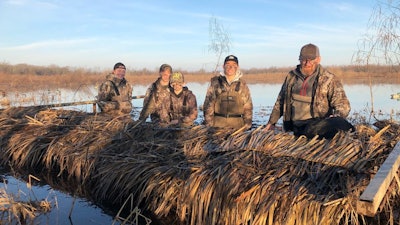
The potential risk highly pathogenic avian influenza (HPAI) poses on Arkansas’ meat and poultry industry is not lost on Deacue Fields, vice president of the University of Arkansas Division of Agriculture.
“In Arkansas, agriculture is the No. 1 industry, and poultry is the No. 1 commodity,” Fields said during the International Avian Influenza Summit on October 16 in Fayetteville, Arkansas. “Poultry and egg production accounts for over $5 billion, which is about half of the agricultural cash receipts in the state of Arkansas, so poultry also is kind of the economic pillar for many other rural communities throughout the state of Arkansas.”
But avian influenza also poses another economic threat to the state of Arkansas, he said.
“In addition to our commercial poultry and egg production, Arkansas is also home to some of the world’s best waterfowl hunting, which is also impacted by avian influenza. So, each year, more than 100,000 waterfowl hunters come to Arkansas to hunt the flooded timbers and rice fields of Arkansas, and they generate about $1 million each day during the hunting season to the overall state’s economy,” said Fields.
So far, no commercial poultry flocks in Arkansas have been affected by HPAI in 2023, and the only confirmed instance of HPAI in commercial poultry in the state during 2022, which was a flock of 56,000 commercial broiler breeders in Madison County. That case was confirmed more than a year ago, on October 7, 2022. Two virus was also found in two backyard flocks in 2022, but no backyard flocks have been affected in 2023.
Twenty cases of HPAI in wild birds in Arkansas have been confirmed in 2023, according to the United States Department of Agriculture (USDA) Animal and Plant Health Inspection Service (APHIS). However, detections of HPAI in wild birds or backyard poultry should not have an impact on international poultry trade, per World Organisation for Animal Health (WOAH) standards.
To learn more about HPAI cases in commercial poultry flocks in the United States, Mexico and Canada, see an interactive map on WATTPoultry.com.



















